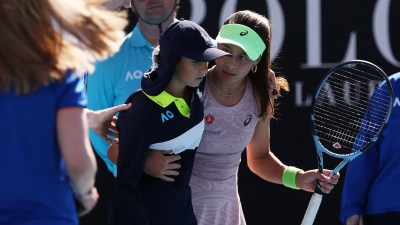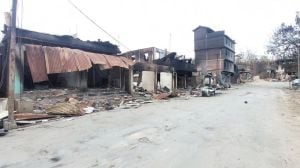Framing the tsunami
In the age of the globalisation of disaster, it illustrates the limits of empathy. Or you could simply call it disaster tourism. And it wasn...

In the age of the globalisation of disaster, it illustrates the limits of empathy. Or you could simply call it disaster tourism. And it wasn8217;t immediately striking. In fact, in the wake of the all-destroying tsunami, when some in the foreign media revived the 9/11 image, called it 8216;Asia8217;s 9/118217;, it seemed evocative acknowledgement of the sameness of human grief. Of course, there are glaring differences between Asia8217;s natural catastrophe and the horrific felling of the twin towers in New York by terrorists 8212; the tsunami has taken a toll that is at least 25 times higher, for one, and we are still counting the dead. But that was not the point, surely. As the days go by, however, the 9/11 image is beginning to sit more and more uneasily in this region. It looks more foreign with every passing television frame. The reason for that is that the response of the US and British mainstream television networks to the two 8216;9/11s8217; is turning out to be a grim study in double standards. The respect for the dead and for the survivors8217; grief that was so amply displayed in the first instance is gone disgracefully missing from coverage of the second.
In the best of times, there is a thin line between television and voyeurism. But after 9/11, special care was observed to ensure that the big news networks in the US and in Britain didn8217;t cross it. There were no visuals of body parts. In the chaotic hours after the attack, TV networks showed people jumping from the buildings but responsibly refrained since. When CBS aired 8216;9/118217; about two documentary filmmakers at ground zero, some of the more graphic footage was edited out. None of that laudable restraint, none of the circumspection and care, could cover the distance to Asia three years later. Here, the grief is a media opportunity. Here, the cameras must whir on, and mikes must be thrust, and survivors cannot be granted their moment of solitude to bid farewell to the dead. Here, there is unsparingly intrusive and graphic coverage of the loss and the suffering, in a tragedy where most of the victims are children.
Could it be that the US, and the West, reserves all its empathy for terrorist strikes and has none to spare in Asia8217;s hour of grief? Or is it that even now, and despite all the talk of crossing borders, the victim will always have many faces. Or at least two 8212; western, non-western.
- 01
- 02
- 03
- 04
- 05































